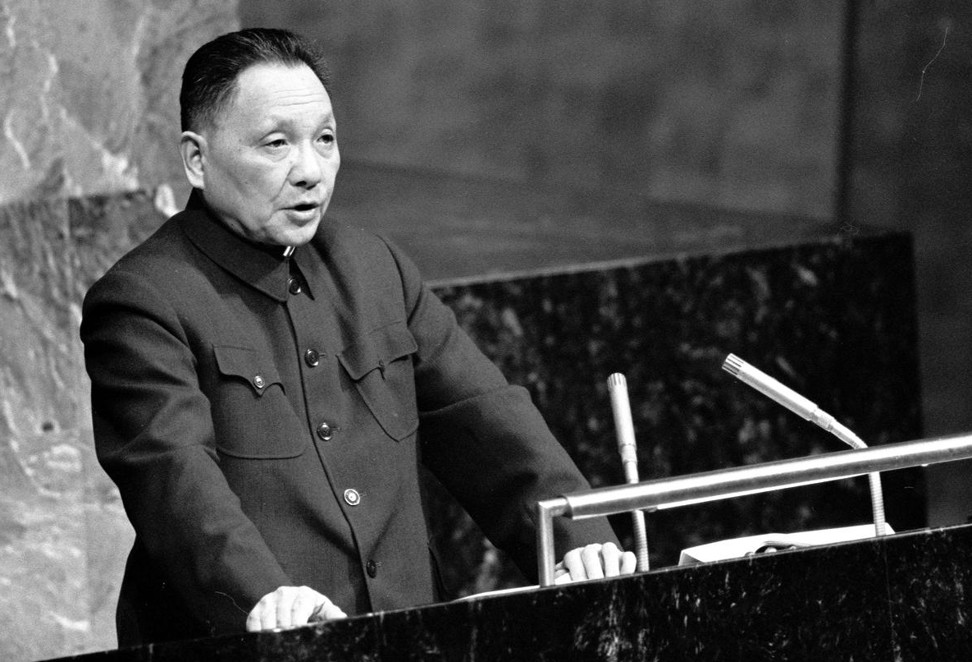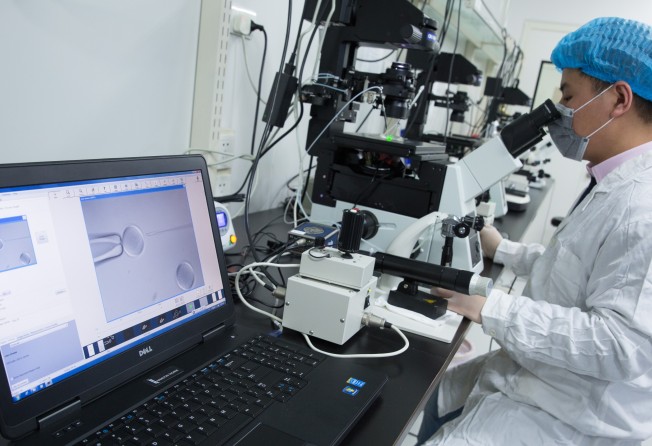
‘Fear everywhere’: China’s scientists braced as ministry takes over funding body
Independent science foundation set up by Deng Xiaoping will come under control of bureaucrats as part of a broader government reshuffle

Chinese researchers are bracing for what will be the biggest change to how they are funded by the government in more than three decades.
“There’s fear everywhere,” Yang Jinbo, a professor with the physics department at Peking University, said on Tuesday after the announcement.
As he spoke, his phone buzzed constantly with a stream of new messages on WeChat, mostly from other researchers concerned about what the move would mean for them.
Hours earlier, a sweeping plan to shake up the central government structure was put to lawmakers at the National People’s Congress that will see the National Natural Science Foundation – which manages science funding and promotes research – downgraded.
It will no longer come under the cabinet and instead will be managed by the Ministry of Science and Technology according to the reshuffle plan, which is expected to be endorsed by the legislature later this week.
The change is aimed at strengthening the government’s “research-driven development strategy” and “optimising the distribution of funding on science and technology”, the proposal says.
At present, the foundation is run as an independent central government agency, with its management and operations controlled by scientists.
It was set up by reform-minded leader Deng Xiaoping in 1986, modelled on the US National Science Foundation with the goal of reducing intervention from bureaucrats to give scientists more freedom to explore fundamental areas.

The foundation spent nearly 30 billion yuan (US$4.75 billion) last year, supporting more than 120,000 teams across the country to carry out research ranging from quantum physics and pure mathematics projects to studies on new frog species.
Meanwhile the ministry – with a slightly bigger budget – provided 37 billion yuan (US$5.85 billion) for research to develop technology that could have immediate applications, such as the high-power batteries used in electric cars.
The change has left Yang, and other scientists, dismayed.
He said asking the ministry to run the foundation was “like asking a pedestrian who has never had their hands on a steering wheel before to drive a car along a massive highway”.
“This could lead to accidents,” he said.
Li Yongqing, a researcher at the Beijing National Laboratory for Condensed Matter Physics at the Chinese Academy of Sciences, said he had applied and received funding from both agencies.
They were run in “quite different” ways, he said.
The foundation encourages exploration, funding scientists to study the unsolved problems that interest them most, even if the research might not appear to have any immediate practical use.
At the ministry, applicants are usually required to clearly state the use of their research and submit a detailed plan with a deadline for when the final results will be delivered.
Li was concerned that moving the foundation under the ministry could affect the development of fundamental research in China.
“Scientific discoveries can’t be planned,” he said.
But Chinese science policy specialist Xiao Guangling, from the Institute of Science, Technology and Society at Tsinghua University, said scientists had no cause for panic.
The aim of the restructuring was to streamline the flow of knowledge from fundamental research to field application, he said.
Many discoveries made by Chinese scientists were either under wraps or had been left to gather dust, Xiao said, because there was no channel of communication between researchers and industry, business or the military.
He believed the change could see research funded by the foundation find applications sooner with the help of ministry resources.
“The foundation’s budget will continue to increase. And its management will also remain more or less the same – there’s no need [for scientists] to worry about losing their funding or jobs,” he said.
But astrophysicist Lou Yuqing from Tsinghua University did not see the move improving the system.
“I don’t think the foundation will operate better under the ministry,” Lou said.
The research community had not been consulted on the plan, he said, and although the foundation had room for improvement – including a lack of supervision to prevent academic fraud and misuse of funds – its problems could have been addressed without downgrading the agency.
Minister of Science and Technology Wan Gang on Wednesday tried to reassure scientists, telling Xinhua that his ministry would not use its administrative power to force them to carry out specific research projects.
“Creativity doesn’t thrive under orders. It depends on scientists’ imagination and free thinking,” he was quoted as saying.
“[We] will create a more relaxed environment for scientists – only when they feel free will they be able to think freely.”